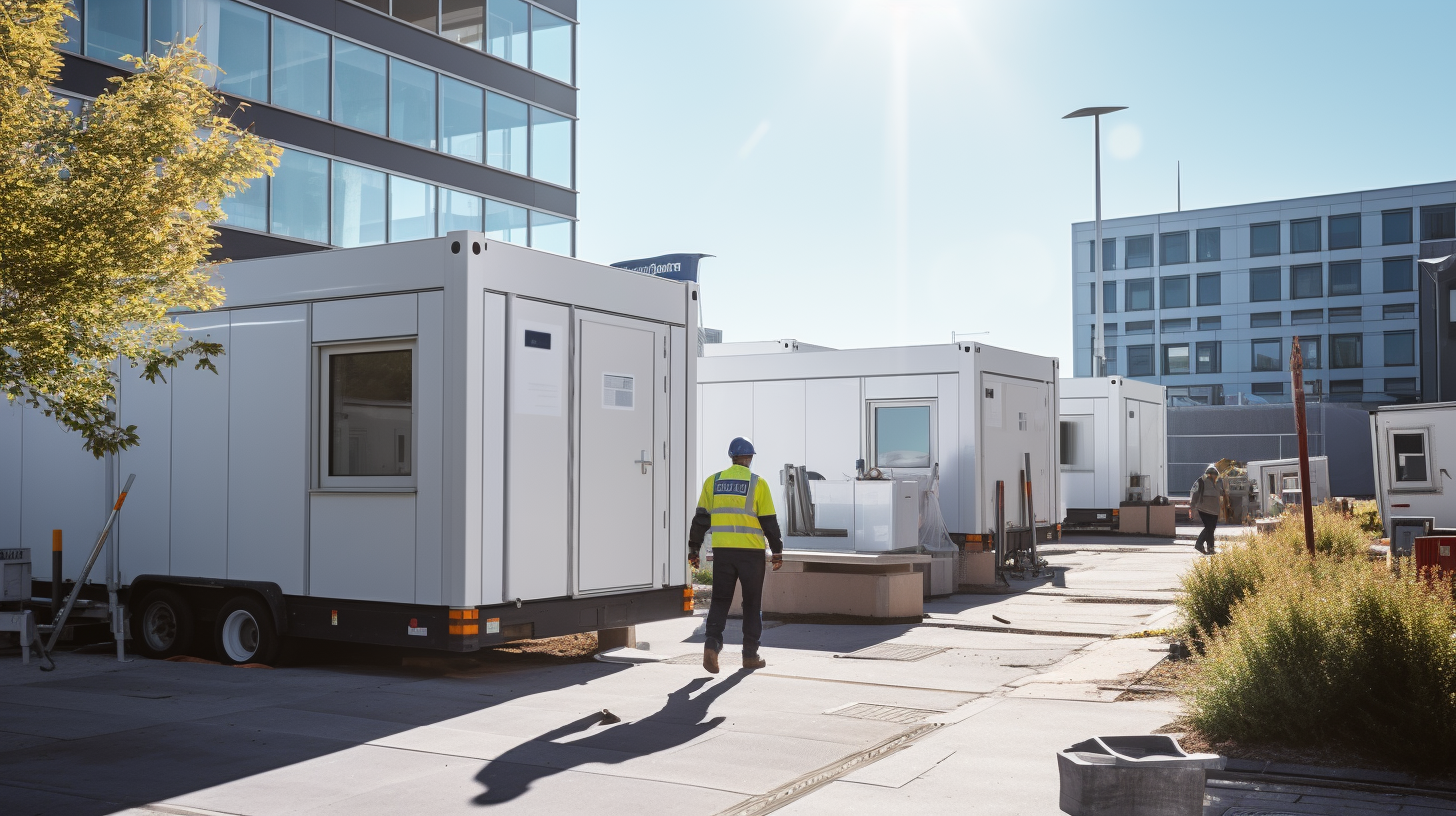
Organisations that need additional site accommodation are increasingly turning to modular buildings to meet their space requirements. Modular buildings are quickly gaining a reputation for being a cost-effective, quick and sustainable solution. Major industries such as construction, manufacturing, education, hospitality and healthcare, which need site accommodation, are finding the benefits of modular buildings ideal for their situation.
Speed of construction and cost-effectiveness are two significant benefits of modular buildings. These buildings are typically constructed off-site, meaning that build time is significantly reduced. Installation time on-site can also take much less than traditional construction, leading to significant savings. Also, modular buildings require fewer construction materials as they are typically composed of individual components installed on-site. This further reduces costs. Modular buildings are not only fast and cost-effective, but they are also highly sustainable. This makes them an ideal solution for industries looking for a greener option.
Modular buildings are often made from recycled materials and are energy-efficient due to their large insulated walls. Also, this type of construction generates less waste. Modular buildings can also be easily adapted to suit the particular needs of the industry. For example, an education facility may incorporate additional modules together to create a larger single space. Or, they may be used in a healthcare setting to create separate areas for examination or pharmaceutical bays.
Modular buildings offer a great solution to industries that need additional site accommodation. Not only are they quick and cost-effective, but they also have sustainability benefits that can help to reduce the overall environmental footprint. It is easy to see why modular buildings have become a popular choice among construction, manufacturing, education, hospitality, and healthcare facilities.
Speed of construction and cost-effectiveness are two significant benefits of modular buildings. These buildings are typically constructed off-site, meaning that build time is significantly reduced. Installation time on-site can also take much less than traditional construction, leading to significant savings. Also, modular buildings require fewer construction materials as they are typically composed of individual components installed on-site. This further reduces costs. Modular buildings are not only fast and cost-effective, but they are also highly sustainable. This makes them an ideal solution for industries looking for a greener option.
Modular buildings are often made from recycled materials and are energy-efficient due to their large insulated walls. Also, this type of construction generates less waste. Modular buildings can also be easily adapted to suit the particular needs of the industry. For example, an education facility may incorporate additional modules together to create a larger single space. Or, they may be used in a healthcare setting to create separate areas for examination or pharmaceutical bays.
Modular buildings offer a great solution to industries that need additional site accommodation. Not only are they quick and cost-effective, but they also have sustainability benefits that can help to reduce the overall environmental footprint. It is easy to see why modular buildings have become a popular choice among construction, manufacturing, education, hospitality, and healthcare facilities.
